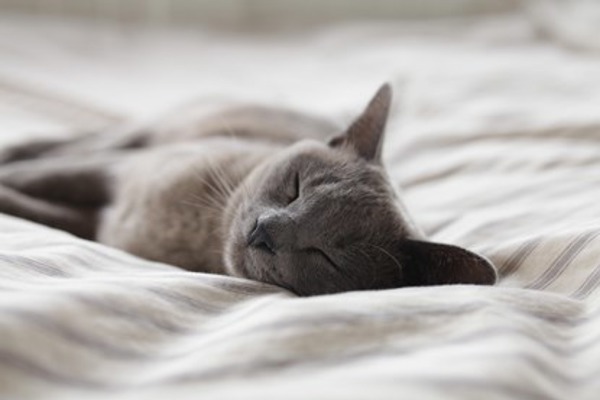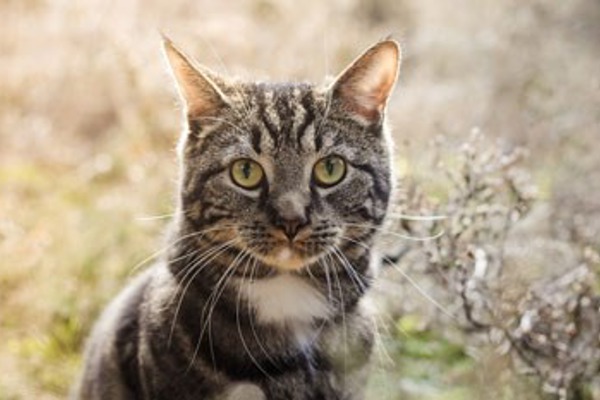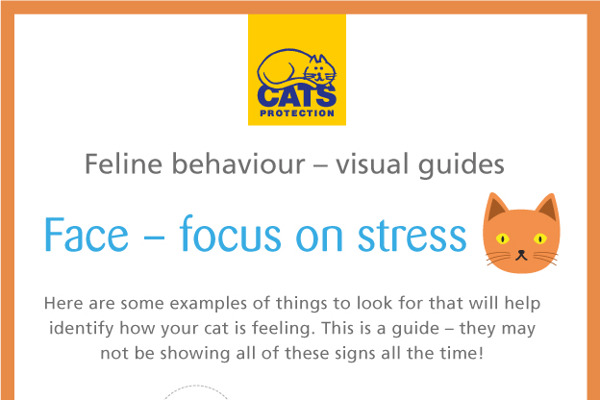Discover why you might be missing signs of stress in your cat and how you can help them be more happy
When you share your home with a cat, they soon start to feel like part of the family. As you cuddle up to them on the sofa, get them their dinner and talk to them about your day, it can sometimes be easy to forget that your furry housemate is actually a different species, with different needs and behaviours.
We quite often attribute human characteristics and emotions to our pets, a phenomenon called anthropomorphism. It helps us connect with them and feel more empathy towards them and so usually it’s quite harmless. However, sometimes it can lead us to misunderstand our feline friends and miss certain signals they are trying to send us.
A common example of this is stress. Cats find certain situations more stressful than we normally do, and they can react to that stress in very different ways. Here are some of the signs of cat stress that you might have missed. If you notice a change in your cat’s behaviour, first get them checked out by a vet to rule out any medical causes before investigating further.
1. Being withdrawn
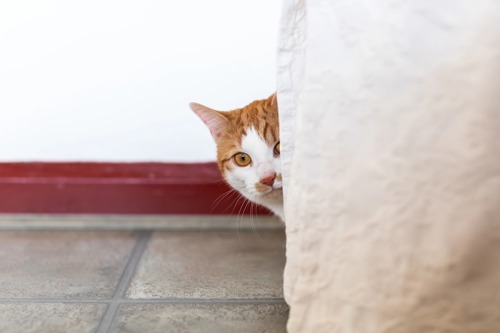
When humans want to spend lots of time alone, we might think they’re being grumpy or aloof, and so we can sometimes think the same of our cats when they are hiding away for long periods. While hiding is a normal behaviour for cats, as it helps them feel safe and secure, if they are doing it more than usual then it could be a sign that there’s an underlying medical issue, or that they are anxious about something. Find out more about cats hiding.
2. Toileting outside the litter tray
If your cat toilets outside of their litter tray, you might be tempted to tell them off for being naughty or attention-seeking. However, by toileting on the floor they’re actually trying to tell you that something is wrong, and punishing them will only make the problem worse. There could be a health problem, they could be feeling stressed, or there could be something wrong with their litter tray. Find out more about cats toileting.
3. Hissing or fighting
Cats who hiss or scratch at humans or other cats can sometimes be thought of as mean or determined to assert their dominance. However, cats prefer to run away and hide from danger to keep themselves safe, and so aggression is usually a last resort. If your cat is showing aggressive-type behaviour, then finding the cause and addressing it will help them get back to being a real pussycat. Find out more about cat aggression.
4. Excessive lip licking
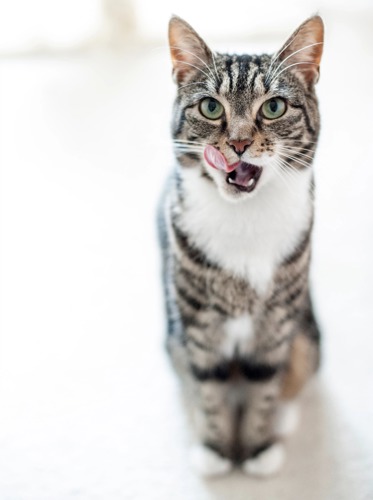
Some signs of cat stress can be so subtle that they are easily dismissed as a ‘quirk’, or not even noticed at all. When the behaviour doesn’t have any impact on our own lives, we might find it easy to ignore, but it could mean that your cat is very unhappy and lead to more problems later on. Pay close attention to your cat’s behaviours and if something has changed, get them checked out by a vet. Find out more about cat body language.
5. Eating less...or more
If your cat is turning their nose up at their food, you might think they’re being fussy, and if they’re wolfing down any food in sight, you might think they’re being greedy. A change in your cat’s eating or drinking habits could indicate that something is wrong though, as pain or stress can have a big impact on their appetite. Find out more about feeding cats.
6. Reluctance to use the cat flap
You may think your cat is simply being lazy by sitting next to the cat flap and waiting for you to open the door for them. However, a reluctance to use the cat flap could be a sign that they’re stressed about what might be on the other side. They might be looking for you to open the door so they can get a better look at what’s waiting for them outside. Find out more about cat flaps.
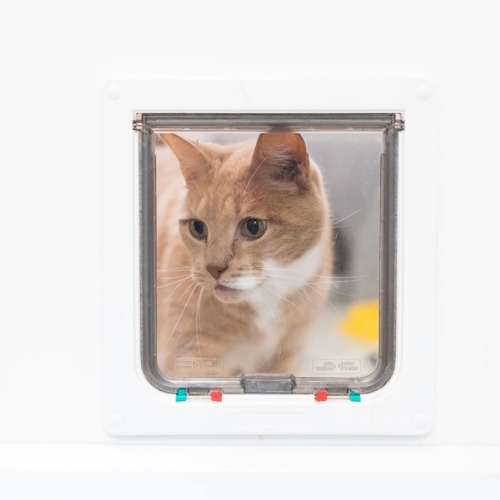
How to reduce your cat’s stress
There are lots of different reasons why your cat could be stressed, and so it’s important to first identify the cause and then solve the issue to help you cat feel happier. After you’ve taken them to the vet and ruled out any medical causes for their behaviour, take a look at our guide to cat stress and how you can manage it.
You could also get the help of a qualified cat behaviourist for tailored advice about your cat, and try using a plug-in pheromone diffuser such as Feliway to reduce your cat’s stress and anxiety at home. FELIWAY® Diffuser plug-ins are designed to create a calming environment in which your cat feels happy, safe and secure, potentially helping to reduce stress and problem behaviours. Ceva will donate 10p to Cats Protection for every UK sale of a FELIWAY® Classic or FELIWAY® Optimum Diffuser over the next three years, raising at least £45,000 to support cats and kittens in our care.

